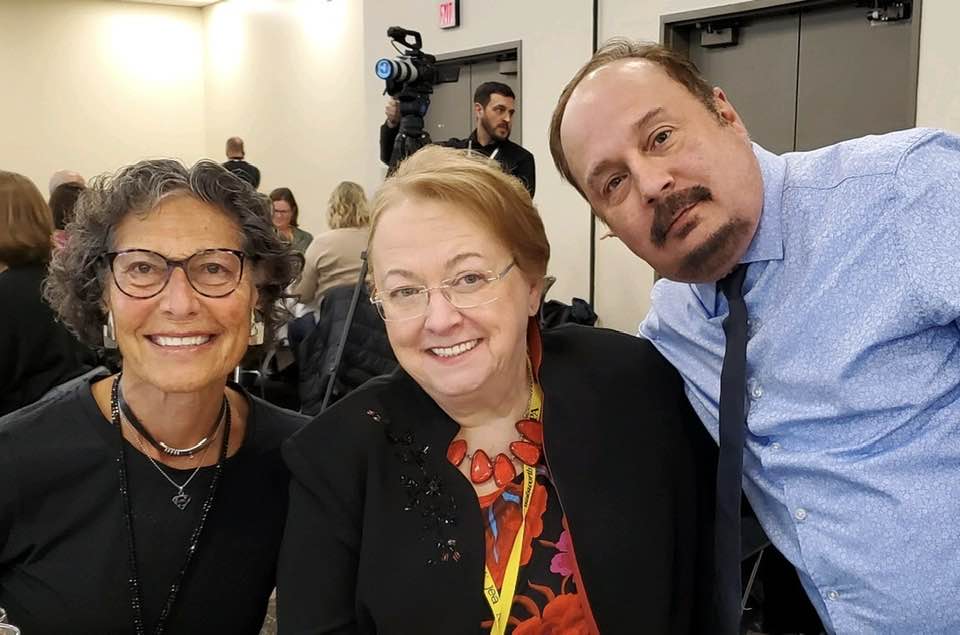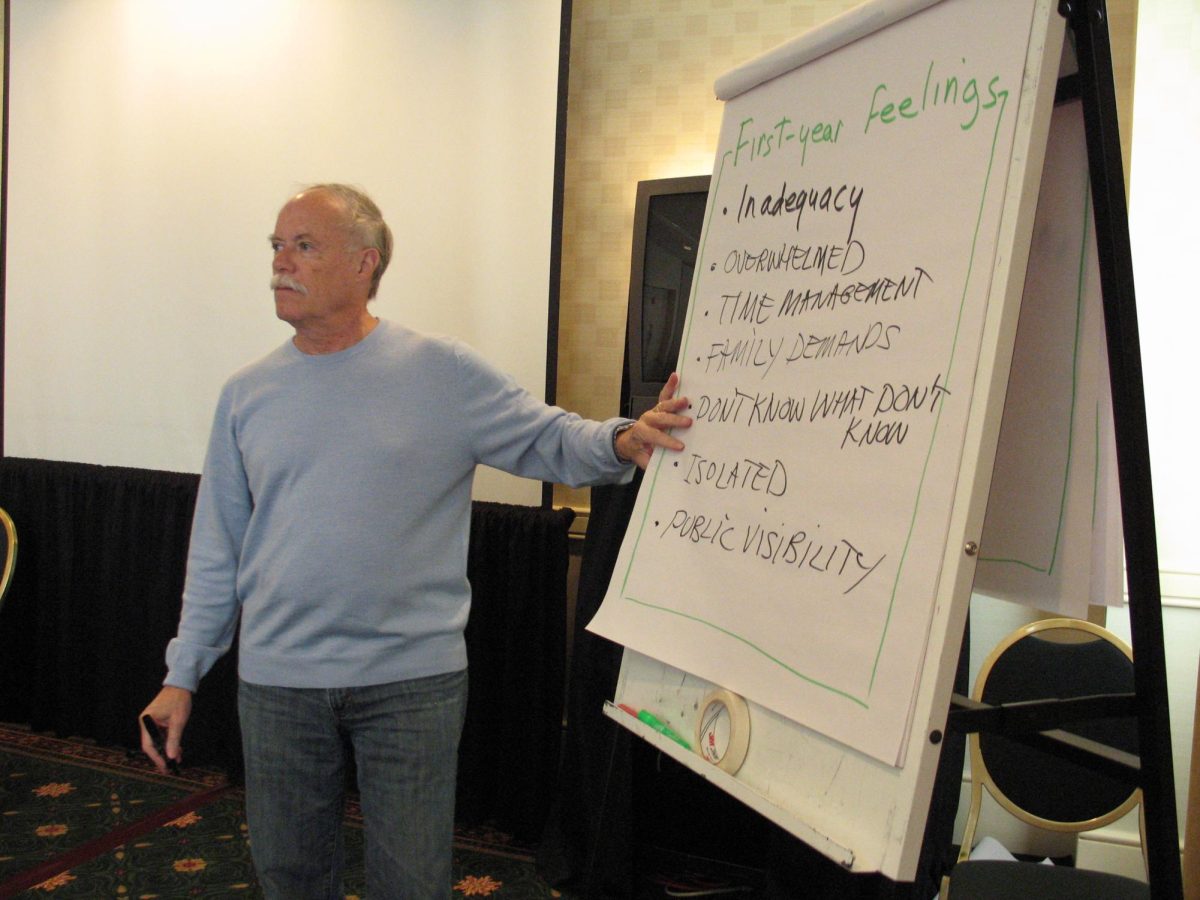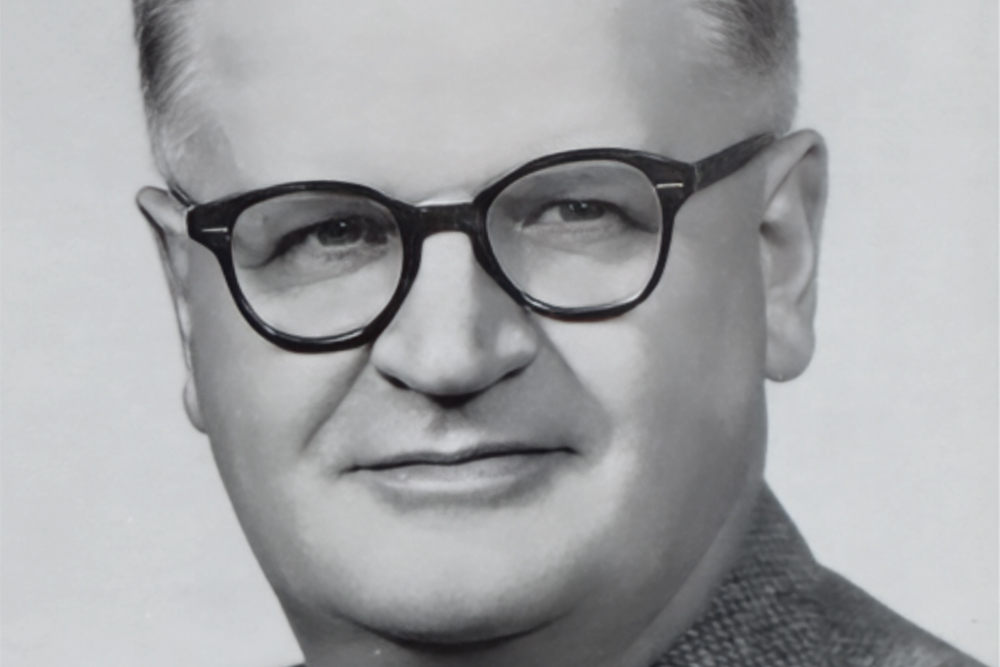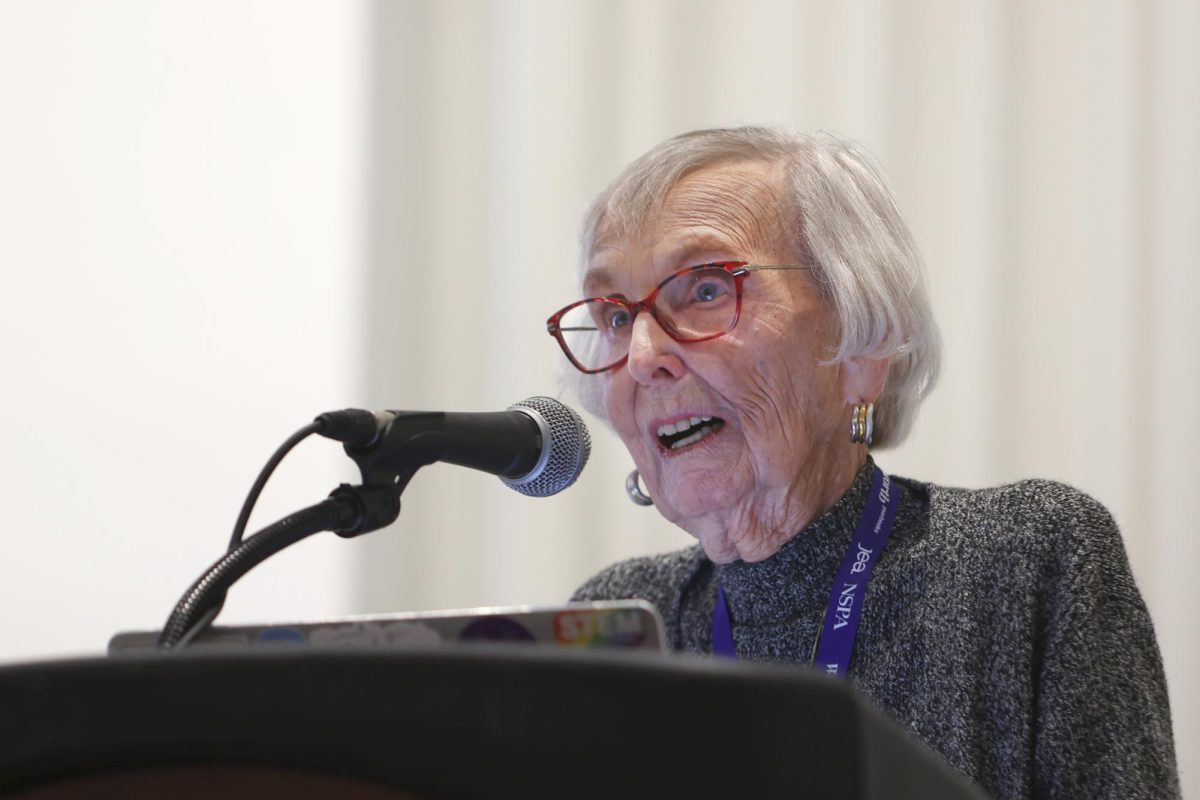Reprinted From NAJD Digest, v. 18, no. 2, February 1964
By H. Stephen Carlson
President of Journalism Education Association
The Journalism Education Association … But why’d you have to change the name?
The National Association of Journalism Directors had a name that was so self-limiting, the executive board felt it was hurting the organization. The idea that “journal-ism directors” excluded journalism teachers and news-paper and yearbook advisers had been expressed several times. That’s why a name change was the first of the many changes made in the JEA constitution in Chicago over Thanksgiving vacation.
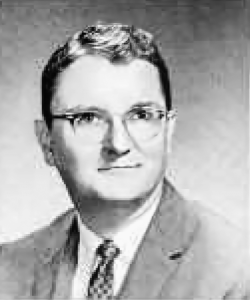
Actually, the name change is symbolic of the new-look JEA, for which the way was paved in the constitutional changes.A complete roster of memberships was set up, including in addition to active members, associates, affiliates, professional organizations, school and state memberships.
The way was cleared for the opening of JEA offices at the NEA office building in Washington, D.C., thus giving JEA a truly national character.
The amount of dues was removed from the constitution, and the Executive Board was empowered to increase dues to $5 for the coming year, to give the organization an income more in line with that of other NEA departments.
Provisions were made empowering more JEA participation in other national meetings, such as NCTE and NEA, as well as state or regional meetings.
STATE AND REGIONAL DIVISIONSHIP
In other JEA action, second vice-president Ruth Marie Griggs, assisted by former Indiana state director Kathleen Kellman, has formulated and sent to state and regional directors a new schedule of the duties of state and regional directors and officers, spelling out in detail their jobs and the responsibilities of JEA to area and local organizations.
PUBLICATIONS
With the continuing sale of “All-American Adviser,” Lee Groner, Greenville, Mississippi, Southern region director, has undertaken a projected study of newspaper and year-book business methods, with the intention of publishing a handbook on standard business procedures and, it is hoped, business aids for staffs.
Other publications currently projected are a booklet on photography for the beginning adviser, being written by J. F. K. Paschal, former Texas state director, and, possibly, a handbook on libel laws as they apply to the school press.
SPECIFIC AMENDMENTS
Memberships established included active, associate, institutional, sustaining (commercial), student (to those interested or advising of high school journalism), and life memberships.
Added as an official address of the association was 1201 16th St. NW, Washington, D.C.
Restriction on the number of issues of JEA Digest was removed, to pave the way for more frequent publication so long as The Digest retains its present format.
The Executive Council was empowered to act on business between national meetings.
Provisions were included for NEA collection of dues and to allow the NEA to sell JEA pamphlets; those actions give JEA an outlet in addition to NSPA.
THE EFFECT OF THE MEETING
What effect will these constitutional changes have on JEA/NAJD? Other than the name change, I really don’t expect much change this year, if any. The dues increase can have no effect, nor can it bring an increase in income, simply because the change was made after most of the memberships for the year had been paid
Further, JEA is contemplating no immediate move, to Washington or anyplace else: JEA began its increased schedule of meetings last year, and anticipates no addition-al meetings except a section meeting, possibly at NCTE, in addition to its meetings with NSPA and NEA. The money just won’t be there yet.
There has been an increase in interest in some regions due more to the drive and spark of Mrs. Griggs, JEA’s active second vice president than to any constitutional revisions.
It is fairly safe to predict that sniping at JEA will increase. Added to those who will want to kill any national advisers’ organization will be those opposed to change in anything, anytime, and individuals who have specific and quite legitimate objections to one or more of the provisions.
Before the meeting began, there were three camps in NAJD: those who wished to remove all NAJD-NSPA ties and move NAJD immediately to NEA, NCTE, AEJ or some other headquarters — with no suggestions as to how NAJD should get the money; those who wished NAJD to remain the same relatively inactive organization, or, in some cases, wished to see it killed altogether; and those who wanted something, they thought, maybe, but weren’t sure what, if anything — either because of indecision or lack of knowledge.
I feel that the actions taken in Chicago are scene-setters rather than final actions. JEA is free to meet more often, do more, earn more and serve its members more. JEA has more power and more potential than any other advisers’ organization in journalism so far. JEA now has the chance through careful, painstaking (and to most members, who can’t read the letters, argue the ideas or explore the directions in which an organization can go, painfully slow) work to really serve its members. JEA has the chance to act with some decisions and with independence. I personally hope that in the future this power will not be translated into rashness.



